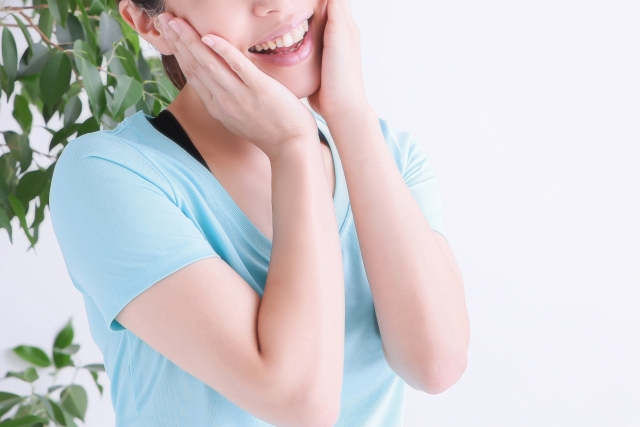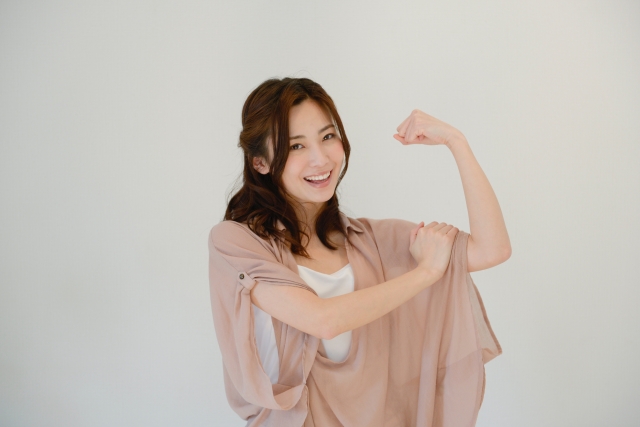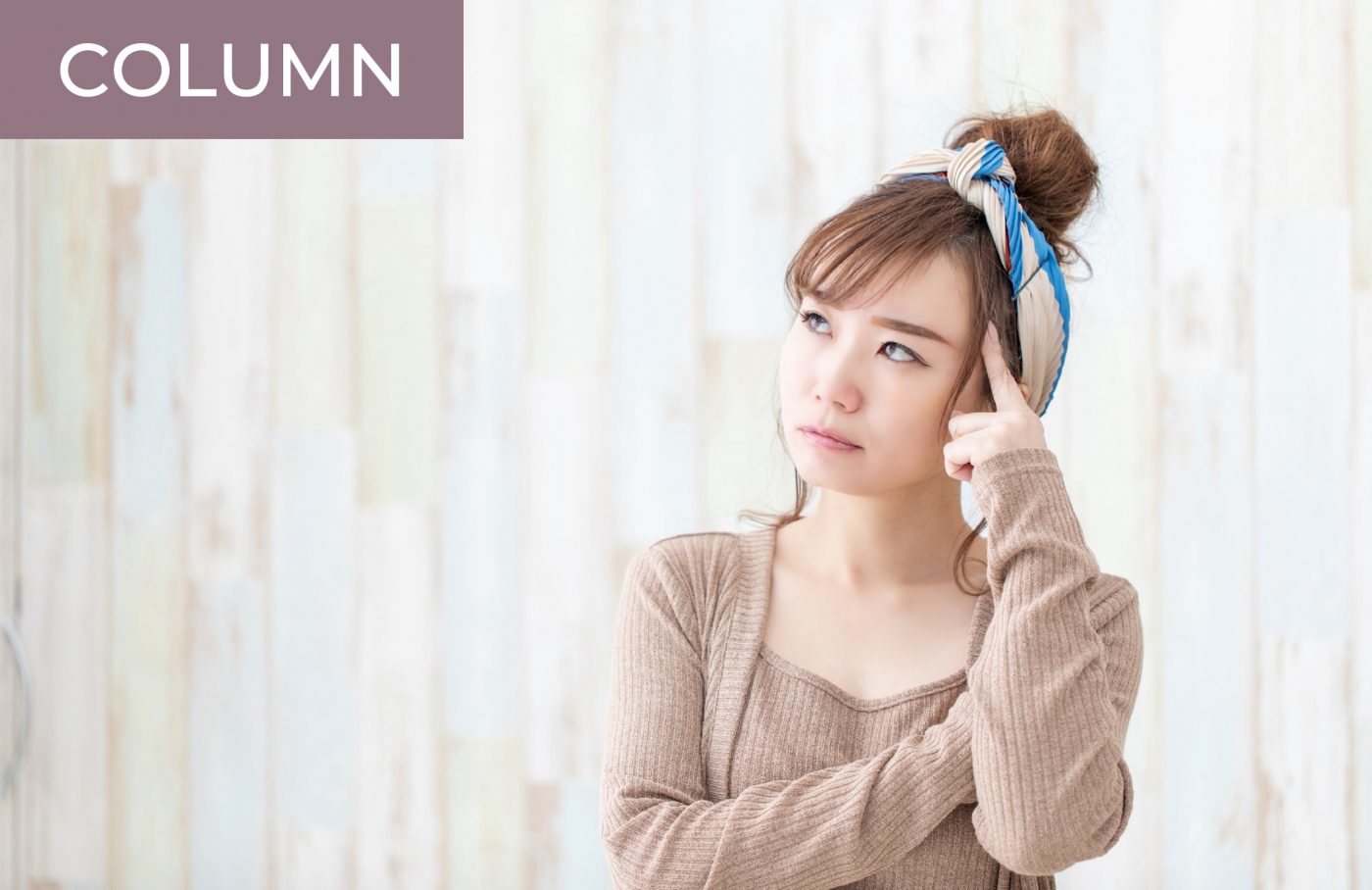I am looking at women’s magazines at the convenience store. On the cover of one of them, I can read, “Improve your joshiryoku!” I am in a long meeting. One of my colleagues has prepared snacks and drinks for everybody. Someone says, “Your joshiryoku is so high!” I am on the train. An advertisement advises visiting a specific hair removal salon to get more joshiryoku, and uses the English expression “Girl power!”
“Joshiryoku” is a word made from joshi [girl] and ryoku [power, force]. Translated directly, it becomes “girl power.” However, the Japanese joshiryoku is far from the philosophy of life once advocated by the Spice Girls.
What Joshiryoku Implies
In Japanese culture, joshiryoku is a “feminine force” that females are encouraged or even expected to have. After some research on a few websites on how to improve this mystical attribute, I have found joshiryoku means:
- Developing your “beauty,” which does not mean developing your personal style of elegance but means: smelling good, wearing different makeup styles, always having your makeup perfect in front of other people under all circumstances, having an equally well-tended hairstyle, and dressing in a feminine and fashionable way.
- Having high self-maintenance (not to be confused with self-care): being well epilated, having a healthy lifestyle (for example, sleeping well to keep beautiful skin), eating well to keep a beautiful body.
- Approaching other people correctly: always smiling naturally, speaking elegantly (no slang), caring for others, and anticipating their needs.
- Developing “women’s skills”: being a good cook, being tidy, and being good at house cleaning.
- Always have the following items with you: tissues and a handkerchief, a sewing kit, lip cream, a watch, and wearing some jewelry.
- Feminine hobbies are also encouraged: flower arrangement, tea ceremony, and cute ball pen illustration.
This list is far from exhaustive, but I think you get the idea: joshiryoku is the opposite of what is considered “female empowerment” in Western cultures today.

Joshiryoku Encourages Social Pressure
The difference in the meaning of “girl power” can be explained by the fact that feminism is not well understood in Japan today. The #MeToo movement was feeble compared to other countries in the world. Japanese women complaining about the shoes they are forced to wear for work, the #KuToo movement‘s effect was much more popular. In 2019, Japan ranked 121st out of 153 countries regarding gender equality, just behind the United Arab Emirates.
Hear me well: I am not saying that the Western view of society is intrinsically better than the Japanese perspective. Nor am I saying that the condition for women in the West is perfect. However, I think there is a problem with joshiryoku for two reasons.
The first is: if these are qualities that women should develop, what does it say about men? Are men supposed to embody the opposite? If you are a man, are you supposed to dress sloppily and not care about your hair or what you eat? Should you avoid caring for others? Should you be bad at cooking and skip chores? What if you like flowers? After all, these are all girls’ things… right?
The second and main reason is that while each joshiryoku quality taken separately is not bad in itself, I dislike the pressure put on women to follow a certain kind of model. Of course, that exists in every culture. If you follow a specific model, you are an accomplished woman and will be admired by all. If you do not follow it, you will be perceived as not being what you should be.
What bothers me is that the Japanese have a word for it, which makes the social pressure easier to come up in conversation. This social pressure can be expressed via the following remarks (all coming from my experience): “I wish I had more joshiryoku,” “You have so much joshiryoku, and I don’t,” “You’ll never find a suitable partner if you do not get a better joshiryoku.”
Japanese Women Are Diverse

However, what makes human beings (women and men alike) fantastic and exciting is that we are diverse (and as you may have noticed, Kokoro Media is a lot about various people who do cool stuff in their lives). I do not think human beings are made to be forced to follow one specific model. I believe the key to happiness is learning to express yourself in a way that suits you.
The women I know in Japan are many things.
Some are very feminine.
Some have a more relaxed style.
Some do martial arts, and some love video games.
Some are great at pole dancing.
Some learn the tea ceremony.
Some are good at caring for others.
Some struggle to even care for themselves.
Some are successful businesswomen.
Some are happy housewives.
And they are all fantastic women.
Gosh, you can be so many things in a single life. Why limit yourself to a single aspect of what you can be? I know an ex-pro kickboxer who is now a happy housewife and teaches baby yoga when she has time.
My point is you can be many things. There is no right way to be yourself. There is no rule for who you should be and the qualities you should choose to develop. The Japanese joshiryoku concept teaches the opposite, and I do not think I will ever reconcile with it.





17 Comments
Jaye
November 17, 2020 at 2:47 AMI don’t think there’s anything particularly wrong with the idea of joshiryoku itself. I think the problem may lie more in the Japanese mindset that joshiryoku is the epitome of femininity, which likely stems from it being overly pushed in media and the like, as you’ve described in this article. It reminds me of picture-perfect skin of models on billboards and ads, confusing people into thinking that kind of perfection is necessary, or even normal. But even in the west we might say a girl who can cook and clean like no other is “a real girly-girl”, which almost sounds dismissing of girls who aren’t so strong on the domestic front, but the key point is we don’t push it. It’s a flattering compliment for girls who match the “girly-girl” vibe, and since we don’t push it like the Japanese push joshiryoku, it’s not so oppressive for other girls. It’s just something we say.
There’s another term I’ve seen floating around, メス力, but the strength of my Japanese doesn’t allow me to dig particularly deep into the intricacies. There seems to be a book on relationships with that term as the focal point, but I am unsure how it differs from joshiryoku. Would you happen to know?
Amélie Geeraert
November 17, 2020 at 1:34 PMThanks for your comment! As you say, it’s overly pushed in the media – the term itself seemed to be born in 1998 in a makeup magazine.
Regarding メス力, I am not very familiar with the topic, but as you have noticed, it seems to be more concentrated on using your “feminine force” in relationships. However, it seems to be a minor concept invented by someone who hoped to make it big, opposite to joshiryoku, which is so integrated that it is now part of everyday conversations.
G
November 17, 2020 at 8:45 AMYet another westerner who does not understand Japan, a country ranked top 3 in quality of life. Japan is a place where roles are well defined and important. I’m so happy to live in Japan and for once see women act and behave like women.
Pierru
November 17, 2020 at 8:51 PMAbsolutely agree. I come from the same country as the author where women have long lost their femininity or grace. Feminism, while I support the base idea, has become such an extreme that we have lost the very basic feminine way of being. In Japan I discovered that women embrace feminine things AND can be strong. Yes, yes, to the Western readers, it is possible to be both.
Anyway the west is going downhill in many ways and it is funny such authors and articles still continue to pop up.
K
November 18, 2020 at 8:40 AMBut let’s also not forget that Japan has one of the highest suicide rates in the world. Most cases, I assume, were caused by the pressure of fulfilling society’s rules and expectations. Sure, having well-defined roles, as you say, may be a good thing. But if these roles were defined automatically by gender and not by personal choice, then I have to disagree. Because people can’t choose their own sex at birth. Having such strict views on gender roles leaves society with no other options but to conform… Otherwise they’d be seen as the odd one out or worse, outcasted. Just because some women don’t act and behave the way society thinks she should, that doesn’t mean that they are less of a woman than their joshiryoku-wielding peers. It would be nice to see more women realize that they have the freedom to be whatever they want to be – and THAT is real girl power, in my opinion.
Fab
November 17, 2020 at 12:31 PMYour problem is thinking japanese women have a problem, or even think they are losing something just because you cannot understand it. They are big enough to fix their problems. You are comparing apples and orange. Your mindset is completely opposite to them, they know yours, and even that, they picked theirs.
Mari Nishizawa
November 17, 2020 at 1:38 PMExcellent article that sums very well how this concept that goes back to the 90s was created only to encourage women to tend toward what an old school society expects them to be. Luckily, things are changing, even if too slowly for my taste, and Japanese women – and overall, women living in Japan, feel freer to be whoever they want to be and to throw to hell ‘joshiryoku’ if they want. Japanese women also certainly do not need foreign men with an archaic vision of what women should be to speak on their behalf – I’m pretty sure they can fend for themselves.
Pierru
November 17, 2020 at 8:48 PMAmélie,
While I appreciate your article, I would like it if French girls would keep their mindset at the door in Japan. I am also from France and remind you that in Tokyo you enjoy a quality of life you can only dream of in Paris. Do you remember harassment in France?
Japanese ladies haven’t asked for your, or other western ladies who think they’re entitled to educate the world, opinion.
Japan is not the west, it’s an alternative model. And it’s succeeding better than your own country, as evidenced even more clearly during this coronavirus. The center of the world is Asia, it’s high time to come down of the Western high horse and accept that they don’t have lessons to take from us.
Respectfully,
Pierre
Megu
November 17, 2020 at 9:58 PMSince the author is a foreigner looking into their culture with a western mindset, I’m interested in what Japanese women themselves think of joshiryoku. I’m only saying that a person’s beliefs, values, and practices should be understood based on that person’s own culture, rather than be judged against the criteria of another.
Do Japanese women feel oppressed? Do Japanese women feel the same way you do when people mention joshiryoku? It’s certainly a very old concept that doesn’t really fly today because of obvious reasons in the western world, which I agree.
Amélie Geeraert
November 18, 2020 at 10:45 AMHi Megu,
Thanks for your comment.
First of all, surprisingly, joshiryoku is not an old concept: it is said it was born in 1998 in a makeup magazine. It seems to have taken off later, because it was elected “trending word” in 2009. So, it’s actually very recent.
I agree it would be very interesting if there was some kind of study of what Japanese women think about it. Regarding the Japanese women I know, it’s 50/50. Half of them never questioned the idea and try to follow its rules or regret not having enough joshiryoku, and the other half thinks it “sucks” and prefer to chose what they want to be.
Marie Furukawa
November 17, 2020 at 10:41 PMThough perhaps a bit extreme, I think joshiryoku is overall a more positive message than what we have in the west– the message that traditional femininity is bad and anti-feminist and childish, and that working to improve yourself is only something people who don’t like themselves do, and because you’re ‘good enough’ means you should never improve.
That said, “you should like this hobby” and the rest is equally damaging to both men and women, but alleviating that societal pressure starts with you as an individual not giving it power by caring so much about it.
Cody See
November 18, 2020 at 12:03 AMThis article came up in my Discover feed on Google. Just wanted to take the time to say thank you — I read this and learned something.
Some of these other comments only seem to reinforce your point. It’s easy to tell when men have never had close friendships with women in their life. Most women I know aren’t trying to kill traditional gender norms; they just want the option to choose.
Someguy
November 18, 2020 at 12:02 PMI lived in Japan 3 years 2008 to 2011 visiting all over I was military. Japan is a land of tradition. As the famous saying goes “The nail that sticks out gets hammered down” you even being from a western country, won’t truly get how they are. As a minority I’ve had to adapt and couldn’t be myself self as to avoid not getting hammered down. Individuals simply put die here. What seems a suggestion is absolutely an order. If the order of the day is girl power. May as well been said by the emperor himself. I can see you want more from them in this area but to do so would be social suicide. Even if your hair in school is brown they will make you dye it black to conform. Feminist mindset is easy in a female minded society that Japan is not.
Mathieu
November 18, 2020 at 1:47 PMBecause you live in Japan, you must understand that the culture is different from where you come from. It’s a cultural thing and you only see it through your eyes and try to explain to the Japanese their own culture.
It’s typical of white foreigner, they go everywhere thinking they’re better than anyone else and try to change the culture of the country instead to adapt.
Ask to Japanese woman what they think about it, surely you’ll be surprise.
Kirlan
November 18, 2020 at 3:17 PMHi!
I am a french girl living in Japan as well. Thank you for your article. I discovered through it something I was not really aware of, because most of my friends are japanese boys or japanese girls in a man-industry-working environment (so not wearing makeup).
Regarding some other coomments, I don’t think that your article was giving any lesson, only your point of view (the title is “Why I do not like…”, Not “why japaneses are wrong about…”) And your point of view is valid, just as any person living in the country.
I really appreciated that you started mentionning the struggle for men (those who would like to take care of their children, do “girly” things, struggle to find a partner because they don’t earn enough to maintain a “stay-at-home-girly-girl”…), because this is something I hear more often as my friends are mostly men.
Have a nice day.
Amélie Geeraert
November 18, 2020 at 4:21 PMHi Kirlan,
Thanks for your reply. In my article I explicitly wrote that I do not consider Western values superior to the Japanese ones, but some people seem to not notice this part for some mysterious reasons. As you mentioned I am not teaching anybody a lesson or trying to change anything – I am advocating the total opposite mindset! I am saying Japanese women are great and should be free to be what they want to be.
Thanks for sharing your experience regarding men. I know some Japanese women who are not fan of joshiryoku but actually I know a few men too. One of them said he was tired to hear that he has high joshiryoku for the simple fact that he can cook pretty well.
Luna
July 11, 2021 at 12:04 AMThe first is: if these are qualities that women should develop, what does it say about men? Does it mean that men should be the opposite? If you are a man, are you supposed to dress sloppy, not care about your hair, not care about what you eat? Should you avoid caring for others? Should you be bad at cooking and skip chores? What if you like flower arrangement? After all, these are all girls’ things… right?
Well this argument is completely missing the point, Japanese boys and men are expected to be polite, orderly, prepared, clean and neatly dressed and many other things just as much. Those who don’t are also looked down on just like girls. Japan as a country views traditions highly, and also have strict social hierarchy.(i mean for god sake their language has different speech for addressing those older, more experienced and higher in authority, strict etiquette.)
The second and main reason is that while each joshiryoku quality taken separately is not bad in itself, I dislike the pressure put on women to follow a certain kind of model. That exists in every culture. If you follow a specific model, you are an accomplished woman and will be admired by all. If you do not follow it, you will be perceived as not being what you should be. What bothers me is that the Japanese have a word for it, which makes the social pressure easier to come up in conversation. I have heard the following: “I wish I had more joshiryoku,” “You have so much joshiryoku, and I don’t,” “You’ll never find a suitable partner if you do not get a better joshiryoku.”
This is rather hypocritical when feminism and western girl power does this exact same thing except instead of embracing feminity it’s about pretending to be a man, while simultaneously hating men for being men. And if you don’t or you’re traditional, you’re a gender traitor to be shamed. (It should be noted those women trying to be men and trying to do the whole traditional male role thing end up miserable, depressed and alone.)